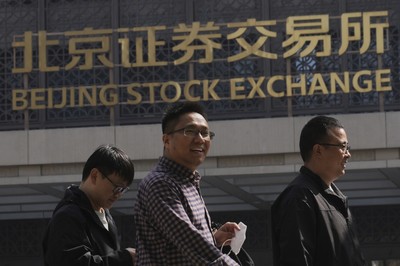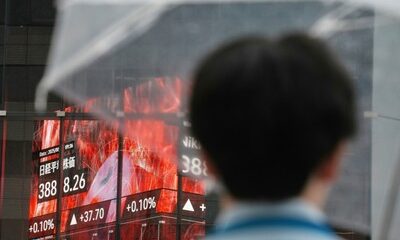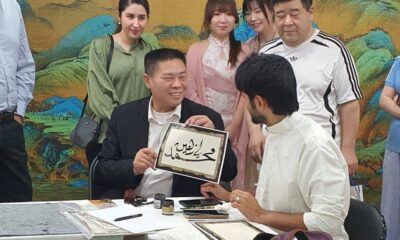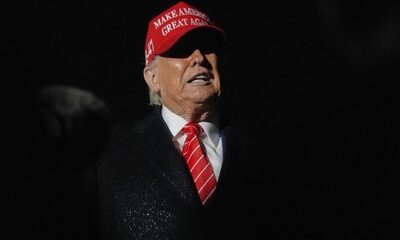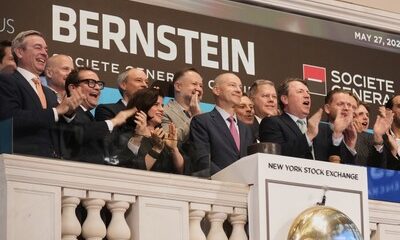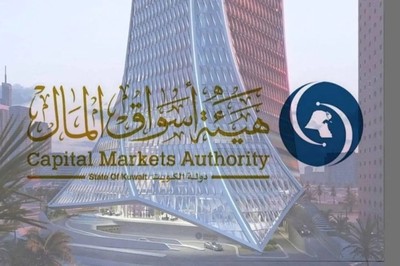BEIJING, April 10, (AP): China is reaching out to other nations as the U.S. layers on more tariffs, in what appears to be an attempt by Beijing to form a united front to compel Washington to retreat.
Days into the effort, it’s meeting only partial success from countries unwilling to ally with the main target of President Donald Trump’s trade war. Facing the cratering of global markets, Trump on Wednesday backed off his tariffs on most nations for 90 days, saying countries were lining up to negotiate more favorable conditions.
China has refused to seek talks, saying the US was insincere and that it will “fight to the end” in a tariff war, prompting Trump to further jack up the tax rate on Chinese imports to 125%. China has retaliated with tariffs on U.S. goods of 84%, which took effect Thursday.
Trump’s move was seemingly an attempt to narrow what had been an unprecedented trade war between the U.S. and most of the world to a showdown between the U.S. and China.
China has thus far focused on Europe, with a phone call between Premier Li Qiang and European Commission President Ursula von der Leyen “sending a positive message to the outside world.” The two are each other’s largest trading partners.
“China is willing to work with the EU to jointly implement the important consensus reached by the leaders of China and the EU, strengthen communication and exchanges, and deepen China-EU trade, investment and industrial cooperation,” the official Xinhua News Agency reported.
That was followed by a video conference between Chinese Commerce Minister Wang Wentao and EU Commissioner for Trade and Economic Security Šefčović on Tuesday to discuss the U.S. “reciprocal tariffs.”
Wang said the tariffs “seriously infringe upon the legitimate interests of all countries, seriously violate WTO rules, seriously damage the rules-based multilateral trading system, and seriously impact the stability of the global economic order,” Xinhua said. “It is a typical act of unilateralism, protectionism and economic bullying,” Wang said quoted as saying.
“China is willing to resolve differences through consultation and negotiation, but if the U.S. insists on its own way, China will fight to the end,” Wang said. Wang has also spoken with the 10-member Association of Southeast Asian Nations, while Li, the premier, has met with business leaders.
China has “already made a full evaluation and is prepared to deal with all kinds of uncertainties, and will introduce incremental policies according to the needs of the situation,” Xinhua quoted Li as saying. Not all countries are interested in linking up with China, especially those with a history of disputes with Beijing.
“We speak for ourselves, and Australia’s position is that free and fair trade is a good thing,” Australian Prime Minister Anthony Albanese told reporters. “We engage with all countries, but we stand up for Australia’s national interest and we stand on our own two feet.”
China imposed a series of official and unofficial trade barriers against Australia in 2020 after the then-government angered Beijing by calling for an independent inquiry into the COVID-19 pandemic. India has also reportedly turned down a Chinese call for cooperation, and Russia, typically seen as China’s closest geopolitical partner, has been left out of the Trump tariffs altogether.
Yet, Southeast Asian nations such as Vietnam and Cambodia find themselves in a particular bind. They benefited when factories moved to their countries from China due to rising costs.
They are being hit by punishing tariffs but have few buyers outside the U.S. and are already operating on razor-thin margins. Trump had previously denied contemplating a pause, but the drama over his tariffs will continue as the administration prepares to engage in country-by-country negotiations. Meanwhile, tariffs will be 10% for the countries where the larger ones were paused.
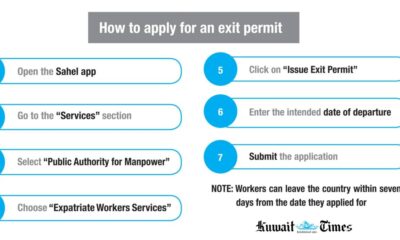
 Latest News17 hours ago
Latest News17 hours ago
 Politics23 hours ago
Politics23 hours ago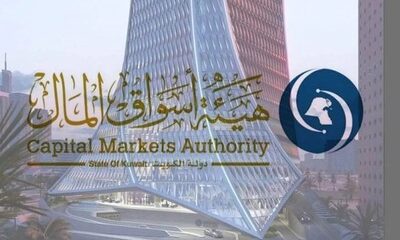
 Business20 hours ago
Business20 hours ago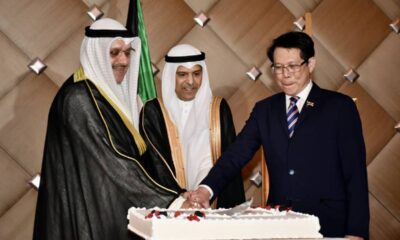
 Latest News13 hours ago
Latest News13 hours ago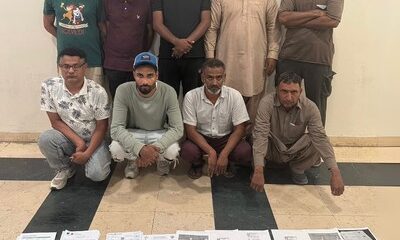
 Politics21 hours ago
Politics21 hours ago
 Latest News11 hours ago
Latest News11 hours ago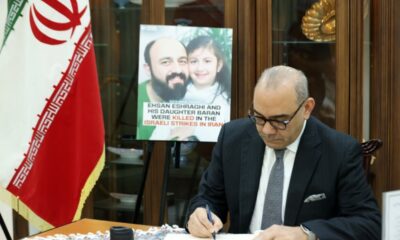
 Latest News15 hours ago
Latest News15 hours ago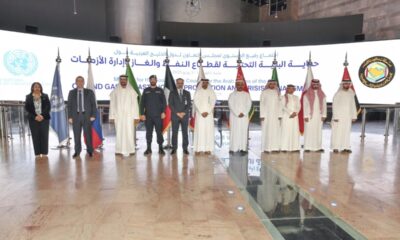
 Latest News10 hours ago
Latest News10 hours ago
